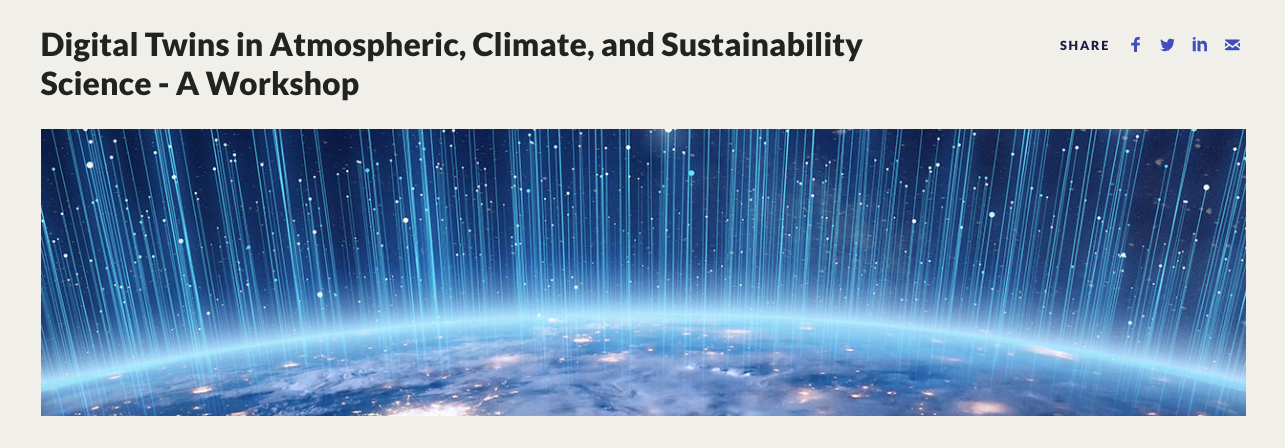NASEM Digital Twins Workshop
A series of Workshops on Digital Twins was organized by an ad hoc committee appointed by the National Academies of Sciences, Engineering, and Medicine (NASEM) to identify needs and opportunities to advance the mathematical, statistical, and computational foundations of digital twins in applications across science, medicine, engineering, and society.
E3SM’s Chief Scientist, Ruby Leung, as part of the committee on “Foundational Research Gaps and Future Directions for Digital Twins”, co-organized workshop #2 on digital twins in atmospheric, climate, and sustainability science, featuring Mark Taylor, E3SM’s Computational Chief Scientist, as one of the speakers. It was a virtual workshop and took place on February 1-2, 2023.
The purpose of the workshop is to solely hear from the community and stakeholders, and not to form a consensus. Topics explored at the workshop include:
- Definitions and taxonomy of digital twins within the specified domain, including identification of exemplar use cases of digital twins.
- Current methods and promising practices for digital twin development and use at various levels of complexity.
- Key technical challenges and opportunities in the near and long term for digital twin development and use; and
- Opportunities for translation of promising practices from other fields and domains.
At the workshop, speakers and panelists discussed key challenges for developing and using digital twins, including issues related to computers, data, model calibration, and uncertainty quantification, explainability of AI/ML, and the different challenges in modeling weather and climate. The workshop also explored opportunities for advancing digital twins and their usability as well as translation of promising practices to and from other fields.
To learn more about the digital twins study and sign up for updates on the study website.
Resources
- Agenda and videos are available on Digital Twins Workshop on Atmospheric, Climate, and Sustainability Science
- NASEM Committee: Foundational Research Gaps and Future Directions for Digital Twins
- Virtual colloquium: The Future of Digital Twinning: Challenges and Implications
This article is a part of the E3SM “Floating Points” Newsletter, to read the full Newsletter check:



